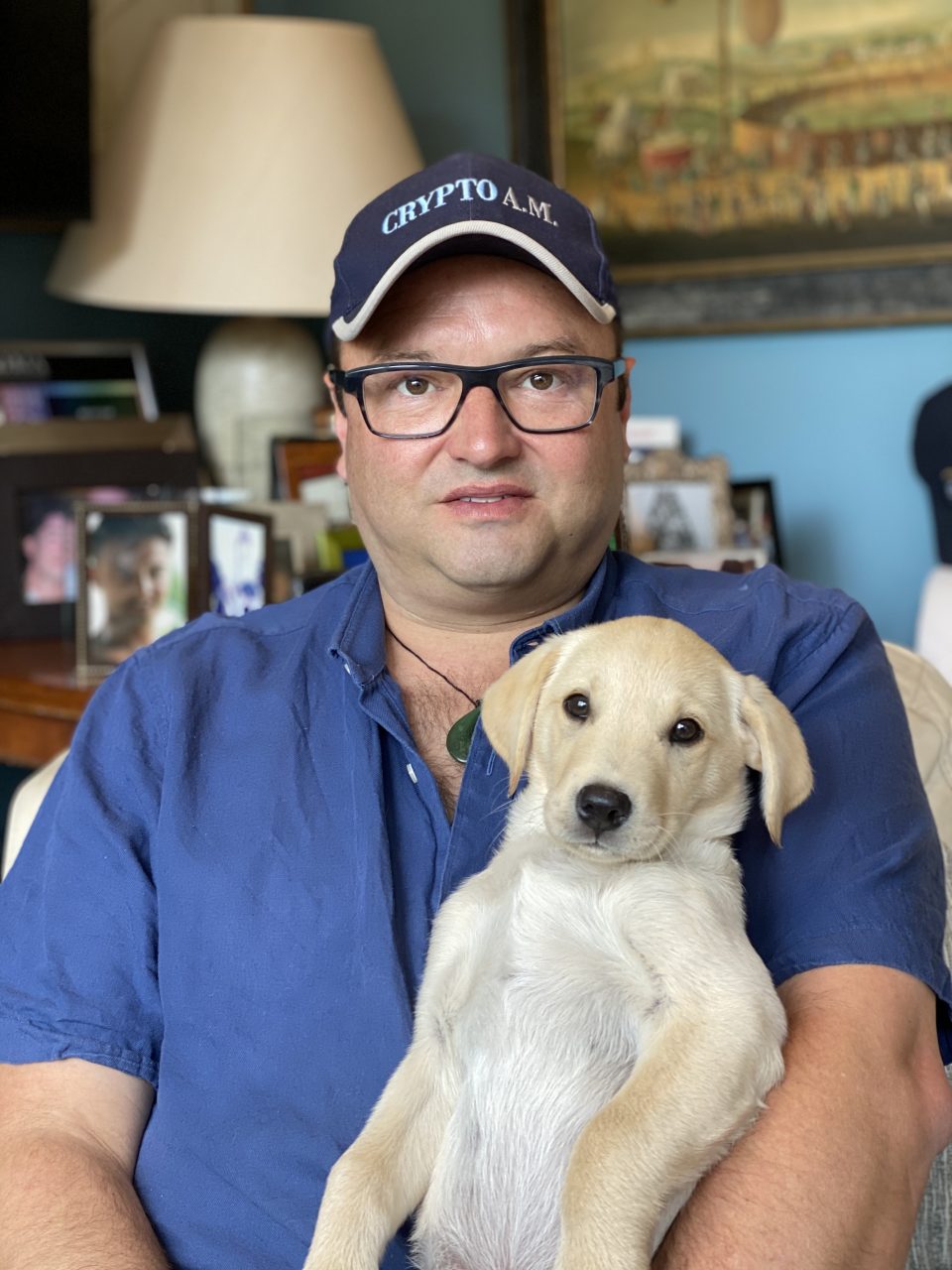The last mile is critical to mass adoption and inclusion.

Global technology infrastructure projects providing the vital backbones for the modern world critically must have compatible last mile solutions in order for mass adoption of new tech to take place leading to mass inclusion – crypto and blockchain are no exception.
Price Watch
Bitcoin (BTC) has retreated somewhat from testing US$10,000 having had a pretty volatile week and at the time of writing, is trading at US$8,870.59 / GB£7,225.79; Ethereum (ETH) is at US$202.12 / GB£164.72; Ripple (XRP) is at US$0.1937 / GB£0.1575; Binance (BNB) is at US$16.27 / GB£13.24 and Cardano (ADA) is at US$0.05325 / GB£0.04328. Overall Market Cap is down circa US$17bn from last week at US$248.8bn / GB£203.62bn (data source: www.CryptoCompare.com)
City AM’s Crypto Insider
A couple of notable events occurred this past week in the crypto world. Firstly on 22nd May it was the 10th anniversary of Bitcoin Pizza Day which is famously the first commercial transaction using Bitcoin. In this case two Papa Johns pizzas for the princely sum of 10,000 BTC or US$88.7m at today’s price!
Second, the crypto world, as is so often the case, had a mini ‘meltdown’ (BTC fell 7%) when Whale Alert on Twitter (@whale_alert) published “40 #BTC (391,055 USD) transferred from possible Satoshi owned wallet (dormant since 2009) to unknown wallet. The coins in this transaction were mined in the first month of Bitcoin’s existence (read today’s Crypto AM: Market View) It has since been judged that they were not part of Satoshi’s million BTC holding. What was very interesting however, was that Craig Wright, who famously laid claim to being Nakamoto, had listed this wallet address in his ongoing Florida court case v’s the Dave Kleiman Estate casting further doubt on his ownership assertions. As if that wasn’t bad enough, the bona fide owner of 145 wallets that Wright listed used them to convey a message that begins: “Craig Steven Wright is a liar and a fraud. He doesn’t have the keys used to sign this message.”
Ever since I began my journey learning about crypto and blockchain there have been important and constant, sometimes overlapping, clarion calls that have and still resonate with me: banking the unbanked, financial inclusion, fractional ownership, connecting the unconnected.
What do all of these vital and noble ambitions have in common? They require the prerequisite technological backbones to work such as low orbiting satellites such as Elon Musk’s Space X Starlink, High Altitude Long Endurance (HALE) vehicles be they fixed wing or balloons such as Alphabet owned Loon and fibre networks.
Two headlines last week therefore grabbed my attention. First, as reported in E&T, Australian researchers say they have achieved world’s fastest ever internet speed which would be capable of downloading 1,000 high-definition movies in a split second.Teams from Monash, Swinburne and RMIT universities have successfully tested and recorded a world-record data speed of 44.2 terabits per second (Tbps) from a single light source. They used a new device that replaces 80 lasers with one single piece of equipment known as a micro-comb, which is smaller and lighter than existing telecommunications hardware. It was planted into and load-tested using existing infrastructure. It is the first time any micro-comb has been used in a field trial and possesses the highest amount of data produced from a single optical chip.
Second, China Mobile International, Facebook, MTN GlobalConnect, Orange, stc, Telecom Egypt, Vodafone and WIOCC announced that they will partner to build 2Africa, which will be the most comprehensive subsea cable to serve the African continent and Middle East region. The parties have appointed Alcatel Submarine Networks (“ASN”) to build the cable in a fully funded project which will greatly enhance connectivity across Africa and the Middle East. At 37,000km long, 2Africa will be one of the world’s largest subsea cable projects and will interconnect Europe (eastward via Egypt), the Middle East (via Saudi Arabia), and 21 landings in 16 countries in Africa.
It’s all very well and good to have these technological advancements and mega data highways but unless there is a suitable ‘last mile’ interface for the end-user, they are pointless. The last mile is a term used in technology and logistics when fulfilling delivery of service, product or item.
The 2Africa announcement coincided with the publication of the research paper entitled The State of Crypto: Africa (jointly written by Arcane Research and Luno) which highlights “cryptocurrency adoption in Africa is somewhat of a dichotomy. Although researchers have identified high ownership rates in certain countries, there is a significant lack of the typical infrastructure we see elsewhere such as nodes, mining operations, supporting merchants, ATMs and exchanges. To realize the potential of cryptocurrency in the region and see swift adoption, there are some major challenges that are still to be overcome. Among these are inadequate internet coverage, competition from mobile money services and hostility from national governments.”
Reinforcing my key point of the importance of the last mile the report also points out the relatively low smartphone penetration in Africa. “Most cryptocurrency wallets only work on smartphones, unlike most of Africa’s mobile money services, which operate on more basic devices.”
So from personal experience, as the Global Ambassador for World Mobile, I know that the ‘last mile’ issue can and will be solved. World Mobile is creating a mobile network built on a new technological infrastructure, leveraging mesh networking, WiFi, unlicensed spectrum and blockchain. This combination dramatically reduces capex and lowers cost to the subscriber, allowing it to reach customers in remote areas that traditional telcos cannot profitably serve. World Mobile aims to become the gateway to the internet for billions of people, enabling key services like digital currency, identity, and education that many of us take for granted.
Looking back to the UK for some good news and apropos of mesh network technology. I caught up with Alastair Williamson, the CEO of Wyld Networks this week after the announcement that it has signed an agreement with Highland Health Ventures Ltd (HHVL) to test and deploy its mobile mesh technology into care homes in Scotland to help protect residents, staff and visitors and prevent the spread of COVID-19 or other viruses. He explained to me “mesh networking is the fundamental technology that underpins our solutions. We originally developed our solution for retail, stadium, transportation hubs, public safety networks and extending the internet; the care home concept was a case of using the technology for something that needed addressing in current CV19 climate using the location and geofencing capabilities. We are now looking at how the technology will help business and manufacturing get back to work safely and with confidence in being able to provide access based on health status and monitor and alert social distancing.”
The Wyld mesh network harnesses the power of people’s mobile phones without relying on connections to cellular or Wi-Fi networks. Data simply finds the quickest and easiest route by hopping between phones to deliver notifications, alerts and other content quickly and reliably, while also accurately measuring social distancing. The system is able to create virtual geozones around the care home and particularly sensitive or quarantined areas to control access as well as dynamic personal two-metre geozones around everyone with the app.
For those who have been following my column for a while – you would have seen me write about Pynk.io before. Their multiple awards have been hard to miss. The London born Fintech is using their A.I. (Rose) to find the Wisdom in the Crowd, allowing them to predict future price action on financial assets including Bitcoin and Gold amongst others. Powered by their Crowd of 27,500+ people in 180 countries, they may be one of London’s most global FinTechs. Pynk have had a stellar start to the year, with Rose correctly predicting the market 74.5% of the time. With everyone being at home, user growth has not been bad either – the team enjoying +58% growth in signups since the lockdown began at the end of March. I have also just heard and confirmed that they are raising on the Seedrs platform going live this coming Monday! Good luck Team Pynk! To see more visit https://go.pynk.io/Crowdfunding
Finally as is now my final weekly sign off I continue to do my best during London’s Lockdown and I’d like to remind you again about my ongoing local community effort for the elderly and vulnerable living on the Isle of Dogs where I have lived on and off for over thirty years. I teamed up with BABB (Bank Account Based Blockchain) and have so far distributed £3,000 to to pay for food and care parcels. BABB has added a light registration for web donation which otherwise allows you to download the app and donate direct to the campaign via www.bit.ly/IoDFoodCare.

James Bowater, City AM’s Crypto Insider